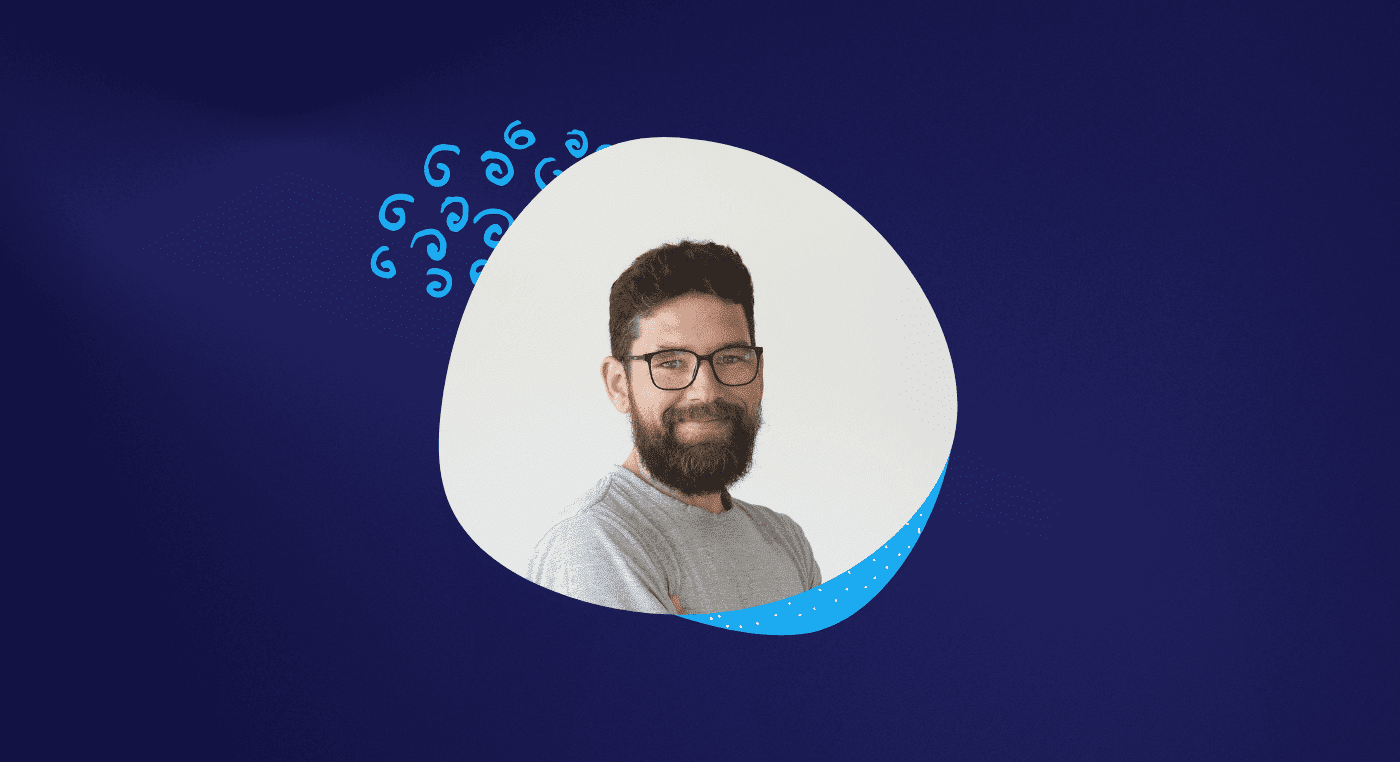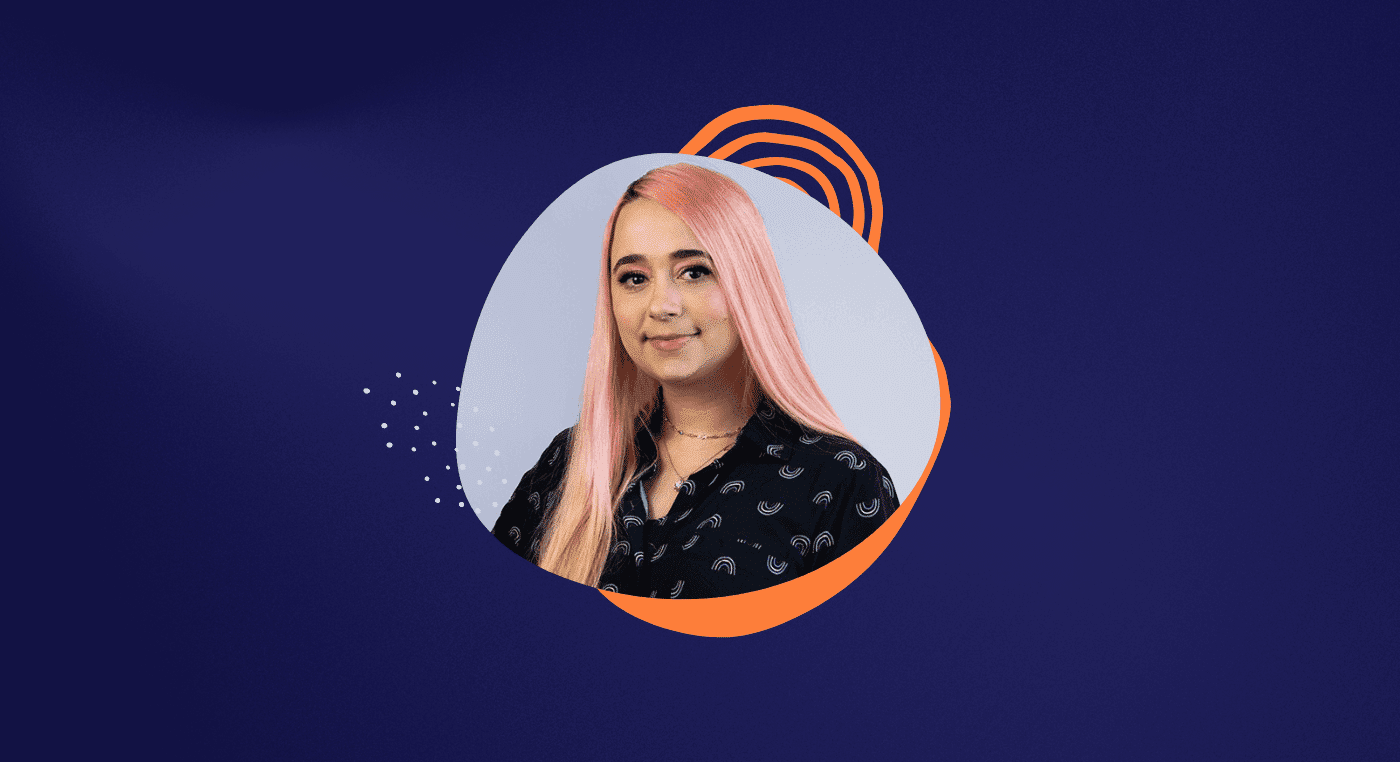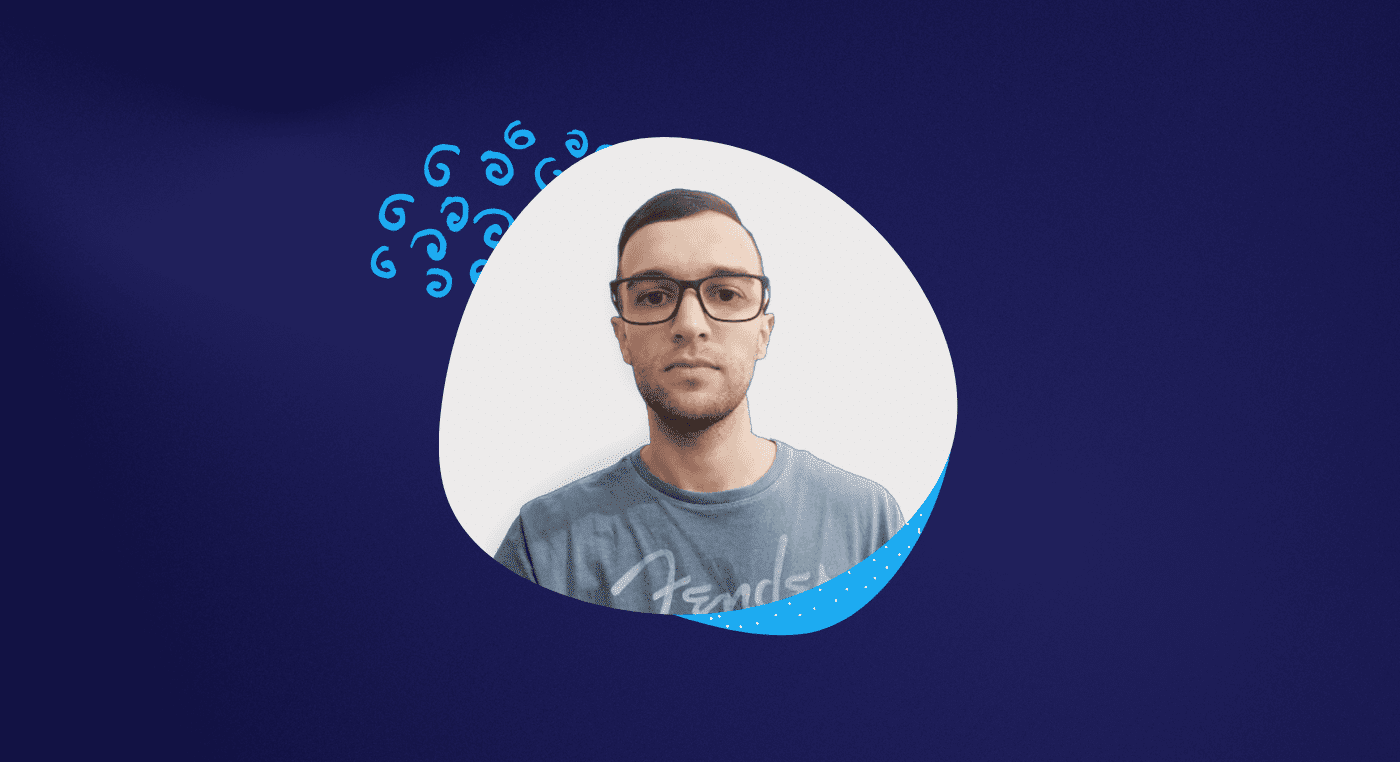Inis is a long-time student of our Master Interface Design Bootcamp who now works in Product Design.
She has already given us an interview about her process of changing careers, moving abroad, and becoming a UX Designer at Facebook Dublin.
In this interview, she's back to tell us about her new phase: working as a Product Designer at Udemy.
Inis, for a quick reminder, tell us a bit about your background.
I have a degree and a master's in Psychology and worked for a few years as a psychologist. And then I went to work in research, which was my last experience in the area.
During this phase, I missed seeing the practical application of the research results I was conducting. Additionally, I missed developing the creative and problem-solving side of things.
Psychology was not providing me with these skills as I would have liked.
That's when I decided to go to college for a degree in Design! But that didn't last a semester(chuckles)! So I decided to drop out of college and study on my own.
I even got an opportunity to work in graphic design at a startup. It was in this company that I could get in touch with several other areas, including UX Design.
I started to follow Aela and enrolled in the Master Interface Design course to get deeper into the subject, already intending to move to Europe. At that time, I was still in Brazil.
So the whole process flowed very well and one decision led to the other. Quitting psychology, starting design, becoming interested in UX, and wanting to live abroad.
Reading Tip: Gestalt Principles: How To Apply Them In Your UX/UI Design Projects
When you arrived in Dublin, what was the biggest change when you started to look for a job?
It took me a while to understand what they expect from the interviews here in Dublin.
It's very different from how they behave and how Brazilians behave in interviews. Not that they don't like our way, but it's a cultural issue, you know?
I wasn't doing well in the first interviews, and I didn't understand why. So it took me a while to understand this issue of cultural differences.

Today, can you easily identify these differences?
Yes! I think it has a lot to do with the way you express yourself, the language you use, and whether you show you know what you are talking about or not.
Besides, an interesting point is that here they don't have the habit of gesticulating while they speak, or of being so expressive with their faces and body, as Brazilians are.
After a while, I realized that when you gesticulate too much, they perceive as if you don't know very well what you are talking about. They interpret gestures that way.
Another important issue is English itself. No matter how well you speak the language in everyday life, working in an English-speaking environment is completely different.
I think these issues may take time to understand and adjust.
About the language, what exactly are the difficulties you see?
For sure, the most difficult part is the vocabulary of the field.
Although UX Design has a lot of terms that are not translated, the day-to-day work expressions are hard to pick up straight away.
In this regard, there are some expressions here that, even if you have studied English in Brazil and can speak, you don't understand! Because these are things that you are not used to hearing.
So you hear them and wonder: "what did he/she say? Then you find out that it was a simple, everyday expression!
But there is no other way; you have to get used to it, and it takes time for you to pick up these expressions.

Reading Tip: What’s The Difference Between UX And UI Design? – Understanding Once And For All
And was it difficult to get used to the Irish accent?
It wasn't that bad!
The accent depends a lot on where you are here in Dublin.
Generally, the people who interviewed me had a very easy accent to understand.
But, as I said, depending on the region where you are here, it can get complicated to understand!
In the other interview, you talked about the process until you joined Facebook. Today, you are at Udemy. How was this evolution, and what do you think helped you in this process?
The thing that changed and evolved the most in my journey was the confidence with which I talked about my work.
But other than that, something that really helped my transition between companies was Udemy's own recruiting process.
When I was looking to change companies, I wanted to move from UX to Product Design.
However, even though my time at Facebook sparked the interest of recruiters, I was always turned down on the matter of experience because I had never worked with Product before.
So I never made it past the first stages of the recruitment process. Often being dismissed right from the phone interview with the recruiters.
With Udemy, it was a little different.
In the interview, I felt that they were very interested in other things: social skills, personal values, and what I could add to the company with my knowledge.
They didn't get hung up on whether I had Product Design experience or not. But they were attached to the potential I had to develop myself and do a good job, adding value to the team.
Can you tell us more about Udemy's recruitment process?
The first contact I had was by phone with Udemy's internal recruiter. Then I had a face-to-face interview with the person who is my manager today.
It was in this interview that I could see the focus was more on my skills and potential rather than my Product Design experience.
The third step was the portfolio presentation.
In this matter, there was a problem that I forgot to mention. I had a confidentiality agreement with Facebook, so I couldn’t share any projects in which I participated in the company. I could only present the cases, but I could not put them in the portfolio and send them to people.
Because of this, many recruiters would not move forward with me in the process. But Udemy had no problem with this issue.
So, in the third stage, I had to present my portfolio and another case that didn't have to be in it.
I decided to present two projects that I did in the Master Interface Design course and two cases that I participated in while I was on Facebook. One project was a video player, and the other was a page we developed with several filters.
An important thing to point out is that I presented not only the final material but the whole process, going through the problems we had and how we identified, solved, and tested them.
The last step was at Udemy. I spent a morning with them and participated in something similar to a Sprint.
I talked to the Product Manager and the Design Manager, and they gave me the briefing; I asked questions, analyzed, and we developed a solution for the problem together.
After that, I had to present this solution and the whole process to the team.

I think this immersion process is cool because it is more dynamic than a Design Challenge, for example.
Yes, and it's also interesting for you, to see yourself working with the people and the team.
With an experience like this, you can also analyze if it's a company and an environment where you really feel comfortable to be and work.
Reading Tip: How to Facilitate Successful Workshops in Product Design
And how has your experience with Product Design at Udemy been?
It's been great! The company is exactly what I was looking for.
Moving from UX to Product Design it's a big challenge. What gave me a piece of mind is that my manager was well aware of this transition of mine. He told me he wanted to see how I would perform in this new product challenge.
So far, the feedback has been positive! So I think I've been doing well (chuckles)!
But I think with Product Design you have more variables to consider.
For example, a product is more complex than a website or a mobile app. You have to think about the business, the stakeholders, and many other things.
And then there are soft skills as well. You have to talk to a lot of people and combine all these inputs into the solution to be developed.
What is very helpful is all the support I have here. The managers, my peers, and everyone have a great sense of teamwork! It's amazing!

And how is this period with remote work going? You've just started, and you already had to work from home.
I confess that I never liked working from home. I like going to the office because I feel things are separate—stuff from work and stuff from home.
In this aspect, it was a great challenge to organize my routine and leave everything in its proper place.
As for the company, it has been very smooth.
Udemy was already a fairly digital company. So even before the pandemic, people could work from home whenever they wanted.
What has changed is that now the whole company is online, not just a few people.
Also, we started using more collaborative tools, like Miro and Zoom, for online meetings.
Before, we didn't use that kind of software as much.
Reading Tip: Unintended Consequences: The Unforeseen Impacts of Technology
If someone is very interested in working at Udemy, what advice would you give them?
The key thing is to enjoy learning.
Being a learning company, we look for professionals with this profile.
Actually, I think this advice applies to several areas and companies.
We always have to study and seek knowledge, not because we need it, but because we like it.
In other words, if you work or do something you like, you will not see studying as a burden. You will study because you like it, you are interested in the subject, and it does you good.

If you were to talk to Inis from the past before she went into Product Design, what advice would you give her?
I would tell her to be calm and patient.
"Take it easy because one day you'll get there!"
I believe everything is a matter of time, of being in the right place at the right time and prepared to embrace the opportunities.
One day things will happen if you are aware of and prepared for them.
Today, thinking about everything I've been through, I wouldn't have done anything differently. I think all the negatives I received led me to Udemy, which is a company I can see myself in for many years.
So, I guess that's it. Be calm and be patient because everything will work out in the end!







